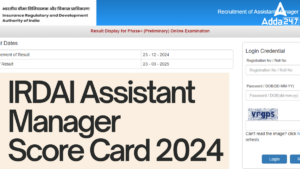Reasoning ability Quiz For LIC AAO 2019
Life Insurance Cooperation has released the notification for the posts of AAO for the Recruitment in 2019-20. This is a great opportunity for all those who aspire to become a Banker this year. Now the next step is to start practicing for the exams from now itself. Here is a quiz on Reasoning ability being provided by Adda247 to let you practice the best of latest pattern Reasoning ability Questions for LIC AAO 2019-20.
Direction (1-5): Study the following information carefully and answer the questions given below-
Eight persons are sitting around a circular table. Some of them are facing inside the center while some are facing outside the center. V sits third to the left of W. S sits second to the left of P. T sits third to the right of S. Both T and Q are facing same direction as V. U sits opposite to Q and Q is not an immediate neighbor of S who is facing opposite direction of P. V is not an immediate neighbour of U. R neither sits opposite to T nor P. Both V and W are facing same direction. W is facing inside the center of the circle. While both R and U are facing same direction to each other but opposite to S.
Q1. Who among the following sits immediate right of S?
R
V
U
P
Q
Q2. How many persons sits between Q and U when counted in clockwise direction with respect to U?
One
Three
Two
Four
No one
Q3. Who among the following faces V?
P
R
S
T
W
Q4. Who among the following sit opposite to R?
W
T
S
P
None of these
Q5. Who among the following sit opposite to the one who sits 2nd right of R?
V
P
Q
S
None of these
Directions (6-10): In each of the questions below. Some statements are given followed by some conclusions. You have to assume all the statements to be true even if they seem to be at variance from the commonly known facts and then decide which of the given conclusion logically follows from the information given in the statements.
Q6. Statements: No book is novel
All story is novel
Some cartoon is story
Conclusions: I. Some cartoon is not book is a possibility
II. All book are cartoon is a possibility
If only conclusion I follows
If only conclusion II follows
If either I or II follows
If neither I nor II follows
If both I and II follow
Q7. Statements: All picture is colour
Only picture is draw
Some painting is colour
Conclusions: I. Some colour are draw
II. All painting are picture is a possibility
If only conclusion I follows
If only conclusion II follows
If either I or II follows
If neither I nor II follows
If both I and II follow
Q8. Statements: All house is castle
All palace is villa
No castle is palace
Conclusions: I. No villa is house
II. Some palace are castle
If only conclusion I follows
If only conclusion II follows
If either I or II follows
If neither I nor II follows
If both I and II follow
Q9. Statements: All white are winter
Some snow is white
Some winter are freeze
Conclusions: I. All snow being freeze is a possibility
II. Some white are definitely not freeze.
If only conclusion I follows
If only conclusion II follows
If either I or II follows
If neither I nor II follows
If both I and II follow
Q10. Statements: Some blue are green
Some grey is blue
All green are white
Conclusions: I. Some grey is neither blue nor white is a possibility
II. All green are grey is a possibility
If only conclusion I follows
If only conclusion II follows
If either I or II follows
If neither I nor II follows
If both I and II follow
Directions (11-15): In these questions, relationship between different elements is shown in the statements. These statements are followed by two conclusions. Mark answer as
Q11. Statements: A≤M>G >K >D, M≤O< S, K<H
Conclusions: I. G<S
II. D
If only conclusion I follows.
If only conclusion II follows.
If either conclusion I or II follows.
If neither conclusion I nor II follows.
If both conclusions I and II follow.
Solution:
I. G < S (true) II. A > D (false)
Q12. Statements: B ≥ E >L<O>R=U
Conclusions: I. B<L
II. U=L
If only conclusion I follows.
If only conclusion II follows.
If either conclusion I or II follows.
If neither conclusion I nor II follows.
If both conclusions I and II follow.
Solution:
I. B<L (false) II. U=L (false)
Q13. Statements: X ≥ Q > F, A > F, R = M ≥ F
Conclusions: I. R > A
II. X > F
If only conclusion I follows.
If only conclusion II follows.
If either conclusion I or II follows.
If neither conclusion I nor II follows.
If both conclusions I and II follow.
Solution:
I. R > A (false) II. X > F (true)
Q14. Statements: D ≤ G > K ≥ R > T, G ≤ E > W, R < Y
Conclusions: I. W ≥ D
II. Y > T
If only conclusion I follows.
If only conclusion II follows.
If either conclusion I or II follows.
If neither conclusion I nor II follows.
If both conclusions I and II follow.
Solution:
I. W ≥ D (false) II. Y > T (true)
Q15. Statements: B ≥ K > G, M ≤ G, D = W ≥ G
Conclusions: I. D ≥ M
II. K < W
If only conclusion I follows.
If only conclusion II follows.
If either conclusion I or II follows.
If neither conclusion I nor II follows.
If both conclusions I and II follow.
Solution:
I. D ≥ M (true) II. K < W (false)
You may also like to Read:





 The Hindu Review October 2022: Download ...
The Hindu Review October 2022: Download ...
 IRDAI Assistant Manager Score Card 2024 ...
IRDAI Assistant Manager Score Card 2024 ...
 SBI Clerk Cut Off 2024, Check Previous Y...
SBI Clerk Cut Off 2024, Check Previous Y...




